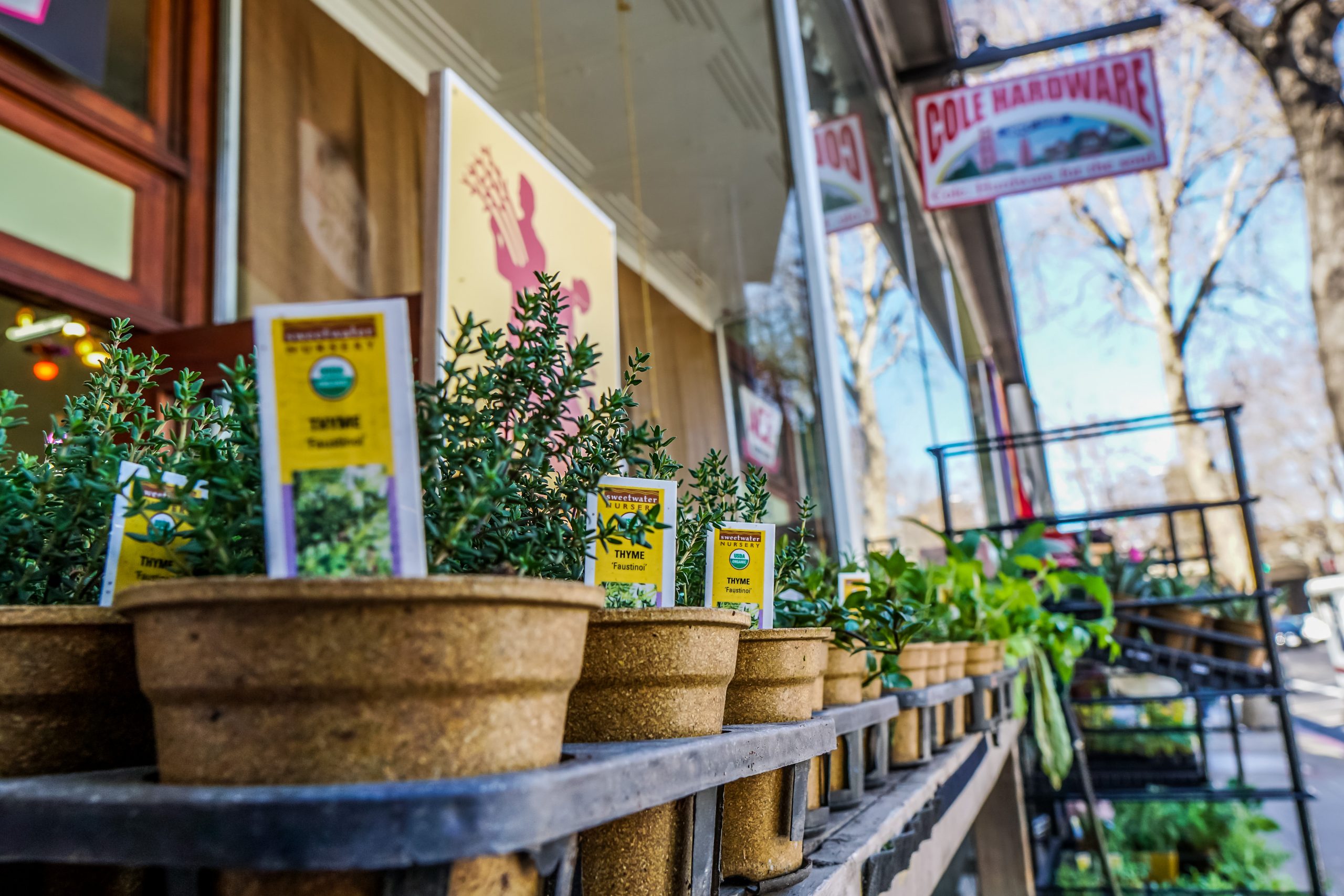Question and answer section
Starting Seeds Indoors: 11 Tips for Sprout-Nurturing Success

As you may know if you were born within 10,000 years ago, plants don’t just spontaneously appear. They grow from seeds which — while nature seems to have no problem growing under the most random conditions — tend to require a little nurturing when intentionally planted by humans. So if you want a year filled with flowering and greenery, think ahead when starting your seeds.
From Seed to Success!
You’ll want to start seeds four to six weeks before you plan to transplant them to your garden or permanent planters. Cool-season crops like broccoli or lettuce can go into the garden before the last frost. Warm-season crops like tomatoes and peppers should not be planted until all danger of frost has passed. For most of the Bay Area, frost is a foreign concept, but consider the cold/rainy season just the same.
Almost anyone can succeed in sprouting their own seeds just by following these few steps:
- Fresh is best. Always start with fresh, high-quality seeds.
- Seeding trays. You can purchase seeding trays designed specifically for starting seeds. These are available in a variety of sizes, with some as large as a 72-cell starter kit if you want to start a lot of seeds. We also stock several compostable options that can be planted directly in the ground, including trays and small pots.
- Use a magical mix. An organic potting mix, which contains no synthetic ingredients and is enhanced with mycorrhizae for optimum growth, is ideal for starting seeds.
- Packets know best. Plant your seeds according to the depth and spacing directions on the seed packet. Cover the seeds with potting mix and tamp down to ensure that the seeds are held in firm contact with the soil.
- Bottoms up. It can be challenging to apply the right amount of water to freshly sown seeds by pouring, sprinkling, or spraying. It’s better to water from the bottom. That means placing the planting container into a larger pan of shallow water for a short time (a few seconds to a couple of minutes).
- Take cover. To retain moisture, loosely cover your seeding tray or other container with plastic wrap after watering. Check the moisture daily and watch for germination. As soon as the seeds germinate, remove the plastic wrap.
- Stay warm. For most seeds, sprouting requires a minimum temperature of about 65–75°F. If the ambient temperature is less than that, you can position a space heater nearby. Just make sure that the soil doesn’t dry out.
- Let the sunshine in. Most seeds need about 12 to 16 hours of sunlight each day. Place your seed containers in a sunny location such as a window with southern exposure. Once the seeds sprout, turn the containers a little each day. This will prevent seedlings from overreaching toward the light in one direction.
- The need to feed. Don’t use fertilizer on seedlings until they have sprouted! In the very early growth stage the seed provides its own nourishment, but once leaves develop, then it’s time for a little fertilizer.
- Harden them off. Your sheltered seedlings need to get ready for the outdoors. For 7 to 10 days, put your plants outside for a few hours each day, increasing their exposure to sunlight and wind. Cut back on watering a bit too. Your plants will become heartier and better prepared for transplanting.
- No stripping. Slowly and gently remove plants from their containers without stripping the roots naked or tearing them. No need to remove the plant if you are using a compostable pot. Plant them in the ground and mix a really good starter plant food into the soil.
Then just await eagerly to enjoy the fruits (or flowers or veggies) of your labor in the months to come!
And if an entire 11 tip list is just too much to handle, we happen to know a savvy team of experts spread across San Francisco and Oakland who can walk you through everything you need to know, do and get to start your perfect Springtime Sproutfest. Visit our garden centers to see all of the soil, fertilizer, and planter options that we offer. Our friendly crew can make the best recommendations for your future plant family!
Stay in the loop!
Sign up to receive our emails!
